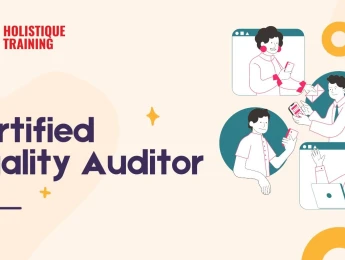Within the healthcare sector, it is essential to strongly focus on maintaining the highest standards of quality. As healthcare organisations directly impact patients' health, any situation where quality is lacking has the potential to cause significant harm.
Many factors contribute to maintaining high levels of quality. A primary factor is the employees themselves, as they are the ones directly working and communicating with patients. Management should work closely with all employees to ensure their skills are meeting expectations and should strive to maintain a safe working environment through rewards and incentives. Increasing competencies and reducing overall stress is key to maximum quality and reducing the possibility of human errors.
Managing information is also vital to ensuring quality standards are met. Analysing data, creating reports, and storing all confidential information in an accessible yet secure manner is essential. Clear, concise, and accessible information guarantees that systems and necessary individuals can effectively access what is needed without being stalled.
Upon completion of this course, participants will be able to:
- Understand the importance of quality management within a healthcare setting.
- Acknowledge the consequences of poor quality management within a healthcare organisation.
- Comprehend the components that may influence quality positively and negatively.
- Conduct risk assessments to identify potential risks and implement risk management plans and strategies.
- Utilise various leadership skills to better organise a team and increase productivity.
- Efficiently manage information relating to patients and the organisation itself to keep them secure and accessible to the necessary personnel.
- Process and analyse data relating to quality performance to identify areas for potential improvement.
This course is designed for anyone in a healthcare setting responsible for maintaining quality. It would be most beneficial for:
- Hospital Directors
- Quality Managers
- Clinical Directors
- Operations Managers
- Risk Analysts
- Hospital Managers
- Senior Pharmacists
- Senior Nurses
This course uses a variety of adult learning styles to aid full understanding and comprehension. Participants will review examples of quality data to highlight areas for improvement.
They will participate in a variety of learning methods and exercises, including seminars, video materials, case studies, and group activities. This assortment of learning methods guarantees that the participants can fully develop their knowledge and understanding of the taught content and all related practical skills.
Day 5 of each course is reserved for a Q&A session, which may occur off-site. For 10-day courses, this also applies to day 10
Section 1: Introduction to Healthcare Quality
- Defining healthcare quality and the importance of maintaining it to the highest standard.
- Exploring the history and development of quality standards within the healthcare sector.
- Identifying the principles of quality management – relationship management, patient focus, processes approach and improvement.
- Evolving the culture that surrounds quality management and improvement.
Section 2: Team Management and Leadership
- Appreciating how employees, team management and leadership is the heart of quality and standards.
- Communicating openly and effectively with employees to ensure all goals and expectations are understood.
- Providing coaching and training to increase skill proficiency.
- Offering incentives and rewards for reaching goals.
- Building a strong relationship with employees to reduce tension and stress.
Section 3: Information Management
- Understanding the responsibility of maintaining confidentiality for all patient related information.
- Exploring effective methods of collecting, interpreting and utilising data.
- Analysing data using various techniques and systems to gain a full understanding of quality.
- Presenting and storing data in a secure and accessible manner.
- Implementing performance improvement tools based upon data findings.
Section 4: Monitoring Performance
- Evaluating organisational goal plans and strategizing how to meet these at a consistent rate.
- Establishing regular opportunities for 1-to-1 meetings to discuss personal performance and creating improvement plans.
- Positively communicating with employees, including offering praise and providing constructive criticism.
- Frequently measuring performance through various methods to identify dips in productivity and quality.
Section 5: Healthcare Safety
- Comprehending the vitality of a safe environment for maintaining high standards of quality.
- Conducting risk and hazard assessments to identify all probable risks.
- Implementing a risk management plan to minimise risks and damages through preventive measures and corrective actions.
- Ensuring all health and safety protocols and procedures are accessible and understood by all necessary individuals.
Upon successful completion of this training course, delegates will be awarded a Holistique Training Certificate of Completion. For those who attend and complete the online training course, a Holistique Training e-Certificate will be provided.
Holistique Training Certificates are accredited by the British Assessment Council (BAC) and The CPD Certification Service (CPD), and are certified under ISO 9001, ISO 21001, and ISO 29993 standards.
CPD credits for this course are granted by our Certificates and will be reflected on the Holistique Training Certificate of Completion. In accordance with the standards of The CPD Certification Service, one CPD credit is awarded per hour of course attendance. A maximum of 50 CPD credits can be claimed for any single course we currently offer.
- Course Code IND05-115
- Course Format Classroom, Online,
- Duration 5 days














